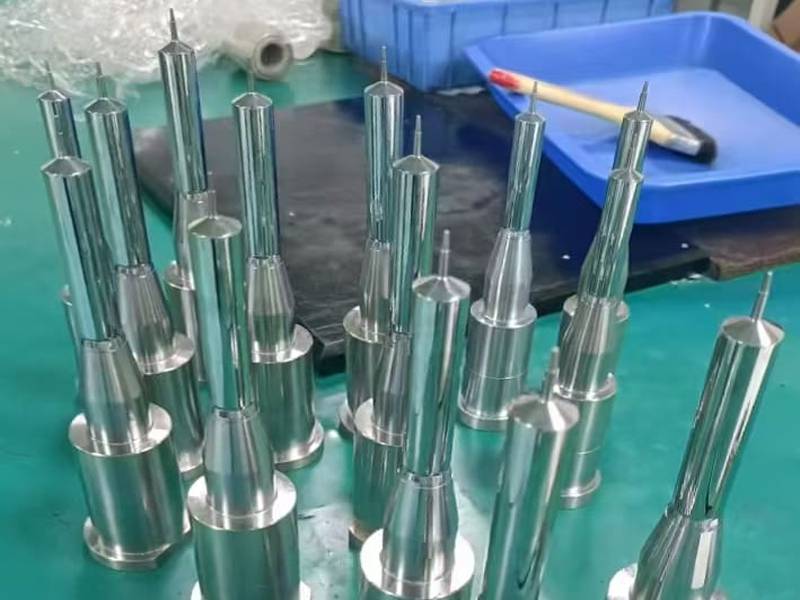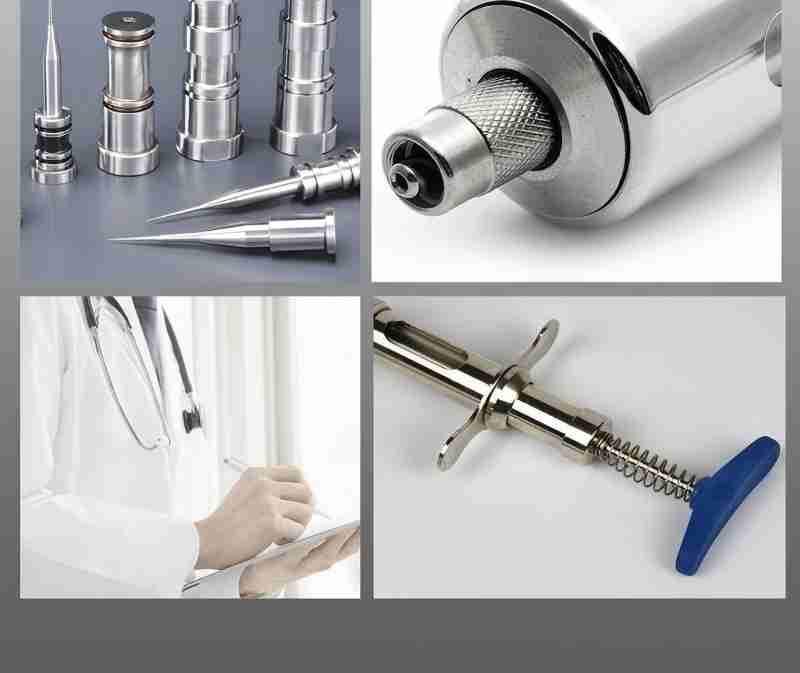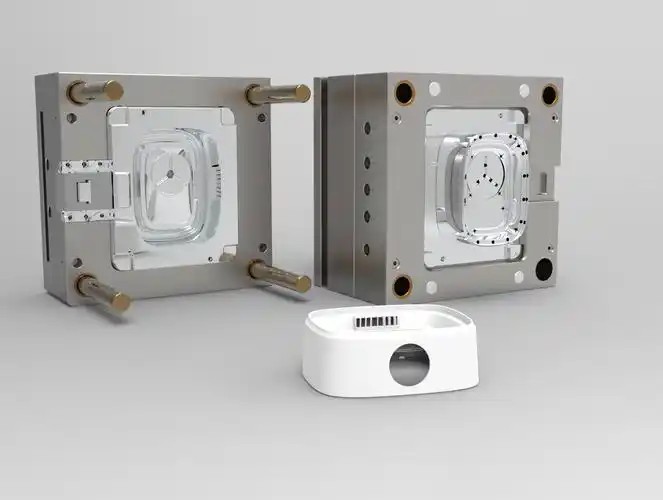How Do Precision Syringe Mold Cores Improve Medical Device Quality?
In the manufacturing of medical devices, particularly syringes, the quality of the mold used in production is crucial. A precision syringe mold core plays an integral role in ensuring the consistency, reliability, and performance of the final product. The term "precision mold" refers to highly accurate, well-engineered mold components that are used to form intricate shapes with tight tolerances. This article explores how precision syringe mold cores contribute to improving the overall quality of medical devices and why choosing a high-quality precision mold components factory is essential for manufacturers.

1. What Is a Precision Syringe Mold Core?
A precision syringe mold core is a central component of the mold used to create the inner structure of a syringe. It shapes the needle hub, barrel, plunger, and other critical parts of the syringe during the injection molding process. These molds need to be manufactured with extreme accuracy, as even the smallest deviation can lead to defects in the final syringe, which could compromise the safety or performance of medical devices.In essence, the precision mold components that make up the syringe mold core are engineered to produce parts that meet stringent medical industry standards, ensuring the final product is functional, safe, and reliable.
2. The Role of Precision in Syringe Manufacturing
Precision in the manufacturing process is paramount, especially in medical devices. For syringes, the stakes are particularly high, as these devices are used in highly sensitive medical procedures, often involving direct interaction with the human body. A high degree of accuracy is necessary for several reasons:
Dimensional Accuracy: The syringe must be precisely measured for accurate dosing. A slight variation in the mold’s dimensions could lead to inaccurate measurements, which can have serious consequences for patient safety.
Smooth Operation: The plunger of a syringe must move smoothly, and any irregularities in the mold core could result in a plunger that sticks, causing user frustration or failure during use.
Needle Integrity: The needle hub must be firmly attached and correctly aligned with the syringe barrel to avoid issues with needle detachment or misalignment during injection.
A precision syringe mold core guarantees that the syringe’s components are manufactured with the highest degree of precision, improving the overall quality and functionality of the device.

3. How Precision Mold Components Enhance Syringe Quality
The integration of precision mold components directly impacts the quality and performance of syringes. Here's how:
a. Minimized Defects
High-precision molds significantly reduce the risk of defects in the syringe. Inconsistent mold design or poor tolerances can lead to defects such as air bubbles, warping, and dimensional inaccuracies, all of which compromise the safety and usability of the syringe. By using precision mold components, manufacturers ensure that each part is created to exact specifications, reducing the likelihood of defects and increasing the overall quality of the syringes.
b. Consistency Across Production Batches
Consistency is another key benefit of using precision syringe mold cores. Medical devices like syringes are often produced in large batches, and it is crucial that each unit meets the same standards. Precision molds ensure that every syringe is created with the same measurements, materials, and overall design, which is essential for quality control, regulatory compliance, and patient safety. This consistency is particularly important when syringes are used for critical medical treatments where accuracy is paramount.
c. Enhanced Durability and Performance
Precision molds are designed not only for dimensional accuracy but also for durability. Syringes are typically single-use, but in the event of malfunction, it could compromise patient care. With precision syringe mold cores, manufacturers can produce stronger, more reliable syringes that resist wear and tear. For example, the smooth operation of the syringe plunger, ensured by precise molding, reduces friction and the potential for malfunction, thus improving the device's performance over time.
d. Regulatory Compliance
Medical devices, including syringes, must comply with stringent industry standards and regulatory requirements, such as those set by the FDA or ISO. One of the most important factors in achieving compliance is ensuring that the manufacturing process is precise and controlled. By using precision mold components, manufacturers are better positioned to meet these regulations and pass quality control inspections.

4. Why Choose a Precision Mold Components Factory?
A key factor in producing high-quality syringes is selecting the right manufacturer for the precision mold components used in production. The choice of precision mold components factory can significantly influence the end product’s quality. Here's why:
Expertise and Technology: A reputable precision mold components factory will have the expertise and advanced technology needed to produce complex mold designs with high accuracy. They typically use state-of-the-art machinery, including CNC machines, EDM (electrical discharge machining), and advanced 3D printing technologies, to create molds that meet exact specifications.
Customization: Different types of syringes require different types of molds. A precision mold components factory that specializes in custom molds can design precision syringe mold cores tailored to your specific needs. Whether you need syringes for medical procedures, pharmaceuticals, or laboratory use, custom molds ensure that your products are produced efficiently and meet the required quality standards.
Quality Assurance: Leading precision mold components factories invest heavily in quality assurance programs, ensuring that each mold is thoroughly tested before it is used in production. They may perform numerous tests, including dimensional verification, material strength analysis, and stress tests, to ensure the mold is both accurate and durable.
5. The Future of Precision Syringe Mold Cores in Medical Device Manufacturing
The demand for high-quality medical devices, including syringes, is expected to continue growing globally. As this demand increases, the role of precision syringe mold cores will become even more critical. Emerging technologies, such as automation, additive manufacturing, and AI-driven design, are shaping the future of syringe mold production.
Automation: Automation can significantly increase production speed without sacrificing precision, ensuring faster time-to-market for high-quality syringes.
Additive Manufacturing: 3D printing allows manufacturers to produce complex mold designs that were previously impossible or prohibitively expensive to achieve, offering more customization and flexibility in mold design.
AI and Machine Learning: By leveraging AI, manufacturers can predict potential defects in the mold process, improving overall quality and reducing waste.
As innovation continues to drive improvements in the manufacturing process, precision mold components will remain the foundation of high-quality syringe production, helping medical professionals deliver safe, effective, and reliable treatments to patients worldwide.
The precision syringe mold core is integral to the production of high-quality syringes and other medical devices. By using precision mold components, manufacturers can ensure that syringes are produced with high accuracy, consistency, and durability. Choosing a reliable precision mold components factory is essential for delivering products that meet the rigorous standards of the medical industry. As technology evolves, the ability to produce even more precise, reliable, and custom-made syringes will further enhance the quality and safety of medical devices used around the world.
precision mold components precision mold components factory precision syringe mold core


